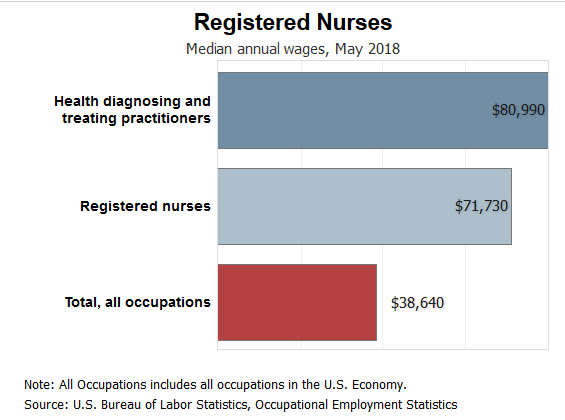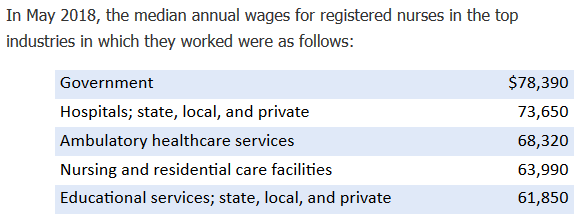|
As with the growing healthcare industry, Nursing continues to grow at a rapid pace. A degree in nursing opens the door to a rewarding and long lasting career. With America's baby boomers aging, the nursing field is stretched rather thin. There is a growing shortage of qualified nurses, and a degree program as an RN or BSN has proven to be extremely valuable. A degree as a RN typically takes two to three years to achieve and is taken at a community college. Employment begins after a student completes the required state exams and is hired at a nursing home, hospital, or other medical facility. Earning an RN degree is an accomplishment and leads the way to earning a BSN degree, or, Bachelor of Science in Nursing. The RN to BSN program advances skills and allows a nurse to take on additional responsibilities. A RN to BSN degree program is taken at a four year university, with an emphasis on research, leadership, and education advancement. Once achieved, career advancement for a BSN degree holder is imminent. Patient care responsibilities are increased, research papers can be reviewed, and leadership opportunities are available.
Examples of some RN to BSN courses include:
- Nursing Research Introduction
- Health Care Trends and Issues in the 21st Century
- Ethical Decisions in Health Care Services
- Community Health
- Leadership and Management in Nursing
- Health Assessment and Promotion
- Statistics
- Pharmacology Issues
- Capstone Project
Any nursing degree is a great accomplishment. With an aging population in need of care, the nursing profession will continue to grow and more quality nurses will be needed.
Salary Forecast
The Bureau of Labor Statistics reports the median salary for a registered nurse was $71,730 in 2018. The lowest 10 percent earned less than $50,800, and the highest 10 percent earned more than $106,530.
Because patients in hospitals and nursing care facilities need round-the-clock care, nurses in these settings usually work in shifts, covering all 24 hours. They may work nights, weekends, and holidays. They may be on call, which means that they are on duty and must be available to work on short notice. Nurses who work in offices, schools, and other places that do not provide 24-hour care are more likely to work regular business hours.
Registered nurses will be in high demand in the next decade. The Bureau of Labor Statistics expects the profession to grow 15 from 2016-2026, opening up hundreds of thousands of new jobs. This incredible growth along with a low unemployment rate, just 2 percent, makes a nursing degree incredibly valuable.
Bureau of Labor Statistics, U.S. Department of Labor, Occupational Outlook Handbook, Registered Nurses, on the Internet at
https://www.bls.gov/ooh/healthcare/registered-nurses.htm (visited May 02, 2019).


|